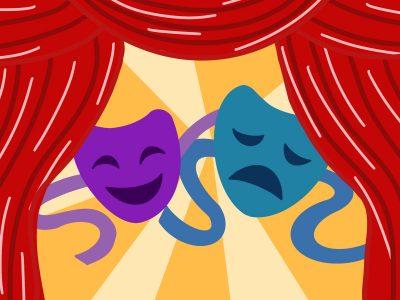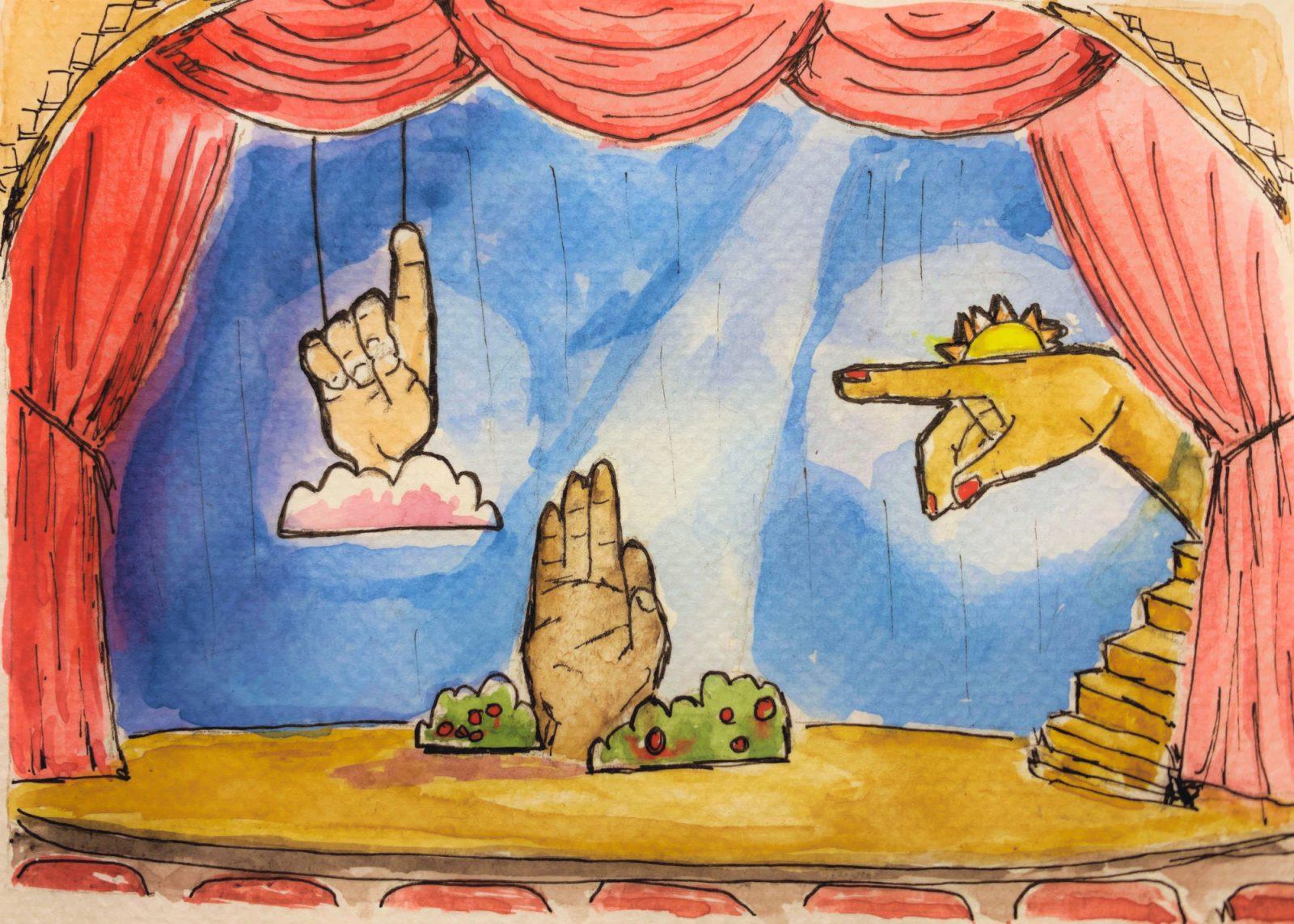A true “theater kid” will fit any of the following criteria, according to the Urban Dictionary: exclusively hangs out or spends their free time in the school’s auditorium, chorus, band or drama room, excessively extroverted and outgoing and is obsessed with “Spring Awakening,” “RENT,” “Be More Chill” or any other musical that nobody in the general public is even remotely familiar with.
I’d be lying if I said I didn’t fit into at least half of these categories. “Spring Awakening?” C’mon. How could I not be smitten by Jonathan Groff’s Melchior performance? I must also confess that I had a “Be More Chill” phase — I watched it an embarrassing amount of times, and even met the cast.

Despite the absurdity and silliness of some of these stereotypes, it is important to discuss some harmful theater stereotypes, such as the widely held belief that men who work in theater are always feminine or gay. This is an explicit illustration of the toxic masculinity mindset, which limits and stigmatizes the roles that men can take on and puts social pressure on them to act in particular ways.
Harmful stereotypes, such as the one mentioned above, are preconceptions that some actors may not fit, making it difficult to work in or enjoy theater. This may cause some to doubt their true interests or abandon a passion for fear of being labeled.
I personally am aware of numerous men who performed in theater with me in the past but stopped after being maliciously called “gay” or “feminine” when they did not identify in that way. In light of this, I believe it is crucial to spread awareness about this stereotype.
As a self-proclaimed “theater kid” myself, I can personally attest to the accuracy of some of the more frivolous assumptions, such as being overly extroverted. Simply ask my friends, on weekends I’ll run down Commonwealth Avenue scream-singing show tunes — and I’m not ashamed!
Nonetheless, despite the numerous stereotypes that I and other theater kids readily acknowledge we fit into, there are several that we may not.
For instance, I seldom listen to show tunes in my free time. Personally, I rank among the top 0.5% of Lorde listeners according to my Spotify Wrapped — who would have thought?
However, it is critical to recognize that, in addition to some of the more ludicrous and absurd stereotypes previously mentioned, the toxic masculinity stereotypes can be extremely destructive to individuals and the theater community and must be identified and debunked.
I have grown up hearing peers use the pejorative phrases, “theater is gay” or “doing theater means you’re gay.” Although there are indeed many straight theater actors, this prejudice appears to persist. Unfortunately, performance and theater are frequently associated with insufficient masculinity, which drives me insane!
As acknowledged by Sean Bennett in “Is Theatre Really Queer: Separating Fact From Fiction,” the theater community does have a tendency to draw in more queer individuals due to the fact that it offers a safe space free from judgment and danger, which many other fields do not. This is not to say that every male who does theater is queer or gay.
In my experience, the theater community is frequently a place where you can be yourself and share your thoughts and feelings — it compels you to connect with a character, nurture emotions and form relationships with others.
Participating in a theatrical production also frequently entails wearing costumes and makeup, which contradicts what some may consider being “masculine” or “manly.” This is a completely absurd frame of mind that reinforces the toxic masculinity mindset and places men in a box where they must act a certain way in order to be considered “manly” by the public eye.
It is incorrect to call characteristics that are seen as non-masculine “gay.” To refute this way of thinking, it’s essential to educate those who have misconceptions about the theater community to introduce them to the delights of performing on stage. We must also encourage those who may avoid participating in theater for fear of being labeled to give it a try.
The end goal is not only to reduce the stigma around the art of performing, but also open a discussion about the adverse effects that descend from harmful labels placed on those in the industry. At the end of the day, it is critical that we continue to pursue our passions without fear of being stereotyped.























































































































Shelley • Feb 22, 2023 at 9:21 pm
This article offers such an interesting perspective, definitely something to think about! Can’t wait to read more from this author.
April Yi • Feb 22, 2023 at 8:53 pm
Maia, this was artfully and thoughtfully written. You have the wonderfully delicate ability to intersperse your own opinion while gauging the feelings of the general public. While I’m far from theater related matters, I truly felt engaged with this article.